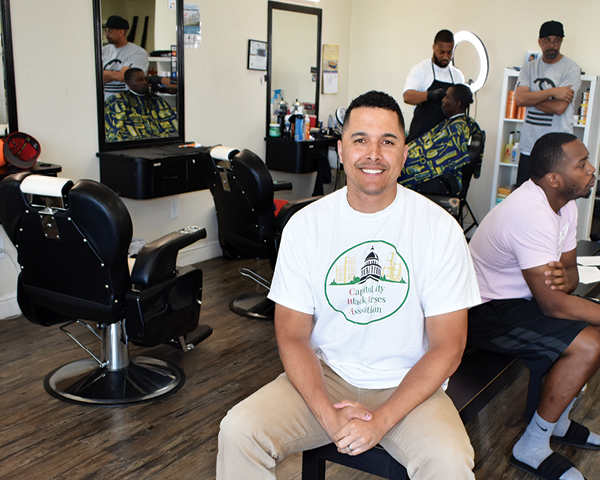
Barbershop Talk
African American men’s perceptions of nursing
Being a nurse was always in Carter Todd’s blood. As a pediatric intensive care unit (ICU) nurse at UC Davis Medical Center, he’s one of roughly 280,000 black registered nurses in the country. That’s a number he hopes to grow.
“Early in my career in the hospital, I realized there weren’t enough African American men who were nurses,” says Todd, who received a master’s degree in leadership in June from the Betty Irene Moore School of Nursing at UC Davis. “I want to change that because nursing is a wonderful option for us.”
In a 2016 survey from the California Board of Registered Nursing, black or African American nurses represent only 4.3% of California’s active nurses compared to 8% of African Americans in California. The figure is even less when looking at black males.
“We need people who represent the communities we serve,” says Piri Ackerman-Barger, an associate clinical professor and Todd’s thesis adviser. “That can inform what is taught in health professions schools, what is researched, policy development and resource allocations. We really do need more African American men in nursing.”
For his thesis project at the School of Nursing, Todd interviewed patrons at barbershops in Sacramento that cater to African American men to understand perceptions they had about the nursing profession. Why barbershops? Research concludes they serve as a cultural hub of influence in the community of African American men and can be a place of health care intervention.
In her study, “Caring, curing, and the community: Black masculinity in a feminized profession,” sociologist Adia Harvey Wingfield found that the black men she interviewed were motivated to enter the profession because they believed this field offered opportunities to be of service to black communities. Todd’s research participants also showed belief in nursing as a viable career path.
“The ah-ha moment for me was just how engaged the community was,” Todd says. “I hope that moving forward, we’re able to implement different projects in churches, barbershops and schools to try to increase the amount of African American men in the profession. Until nurses advocate for the community, things won’t change.”

